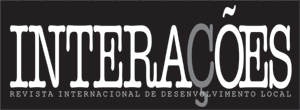Abstract
The fact that public policies for productive inclusion are guided by different references forces the social mediators to articulate them and make them coherent for the target public, which becomes a task they are not always able to carry out. Furthermore, among the mediators themselves, there is also no single conception of what is meant by productive inclusion. In this sense, from a dialogue with the sociology of translation approach (CALLON, 1981; 1986; LATOUR, 2000), the aim is to analyze the role of social mediators in the processes of innovation and productive inclusion of family farmers in the context of the rural extension of the state of Tocantins. The study is qualitative, using the interview technique. It is concluded that the rural extension service has a strategic role in promoting the productive inclusion of family farmers by fostering innovation and facilitating access to specific public policies that address their reality. For this, the mediators need to position themselves in the translation process more as “communicators” than “transmitters”, so that they can advance in the definition of more specific references of their performance in line with the diversity of social segments of family farming and also in the unification of discourses and actions among the participating actors in the interventionist process.
Keywords
sociotechnical network; public policies; rural development
